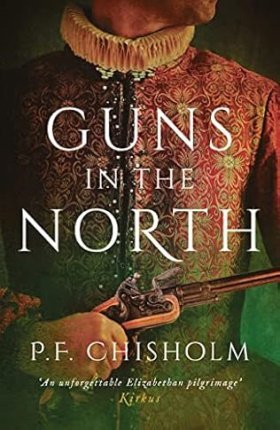‘I... er...’
‘You didn’t rob someone, did you?’
Barnabus coughed and looked very shifty. Carey stared at him until he shrugged. ‘In a manner of speaking, sir.’
‘All right, what happened?’
‘Well, I was coming back to you when I tripped on a... well, somebody who’d bin in a fight and got the worst of it, I’d say.’
‘Where?’
‘Down the alley between Scotch Street and Fisher Street.’
‘And so you robbed him?’
‘No, sir. First I helped him in his door, then I robbed him.’
Carey put his hands to his head. ‘Barnabus, I have told you about footpadding...’
‘I didn’t footpad ’im, sir; ’e was already done over. I just...’
‘You just bloody robbed a man who was lying there helpless. For God’s sake, Barnabus, where’s your Christian charity?’
‘I was drunk, sir. It seemed like a good idea...’
‘How much did you get?’
‘Half a crown sir, and some pennies.’
‘Well, you could hang for that half a crown, you silly bugger. You robbed Andy Nixon and I would imagine that’s the reason why he went to the trouble of incriminating you.’
‘Yes sir.’
‘Which has indirectly caused me an immense amount of aggravation.’
‘Yes, sir. I’m sorry, sir.’
‘You damn well deserve to be in here, and that’s the truth.’
Barnabus looked about him and evidently found this a bit hard, but he decided to say nothing, which was wise of him, Dodd thought, considering Carey’s expression of disgust. At that moment there was a complicated rattle of keys and the gaoler let Lady Scrope into the cell. She looked around, sniffed and shouted over her shoulder, ‘Mr Barker, bring a bucket and spade in here.’
Dodd helpfully moved out of the cell so there was room for Barker who came in eventually with a bucket and spade borrowed from the stables.
‘Pick that up and take it out of here,’ said Lady Scrope, pointing imperiously at the turds by the drain.
‘That, my lady?’ said the youth unhappily.
‘Yes, that. It’s causing bad airs. Quickest way to get gaol fever in a place, which you could catch as well, William Barker, and die of, what’s more. So clean it up.’
‘Me, my lady?’
Lady Scrope put her basket down on the wooden bench next to Barnabus and her hands on the bumroll padding out her hips.
‘I’m not going to do it and nor is my brother. Barnabus can’t because he’s been chained. So that leaves you or Sergeant Dodd to fight it out between you, and personally, I’m backing Dodd.’
Dodd put his head round the door and fixed Barker with a glare that settled the matter. Mumbling that it wasnae his job and an insult forbye, Barker used the spade and bucket and slumped out of the door.
‘I’ll stand guard while you put that on the midden heap,’ said Dodd, wondering briefly if this were some complex way of breaking Barnabus out of jail. No, why be so elaborate about it? If he was going to defy all of Scrope’s authority and the law of the land into the bargain, the Deputy Warden could simply unlock the doors.
Philadelphia turned to Barnabus and briskly examined his eyes, mouth and ears, felt his forehead and wrist and demanded that he undo his doublet buttons and lift his shirt so she could inspect the bruises on his body.
Carey whistled with sympathy and muttered something about bringing a suit for assault against Lowther on Barnabus’s behalf.
That made Carey look depressed and thoughtful for a moment. His sister took the cloth off her basket and brought out a couple of black leather bottles. Barnabus rolled his eyes as she poured two horn cupfuls of what looked like bogwater.
‘Don’t look so worried, Barnabus,’ Philadelphia added. ‘My lord Warden has already refused Lowther permission to put you to the question so nothing else is going to happen to you.’ Barnabus swallowed stickily. ‘Now what else is wrong with you?’ she demanded, putting her hand on his forehead again. ‘You’re running a fever. Have you got a headache?’
‘No, my lady,’ croaked Barnabus. ‘I’m sore, but...’
‘Stick your tongue out.’
Barnabus did and Philadelphia squinted at it critically. ‘Hm,’ she said. ‘Have you been vomiting or purging, or passing blood in your water?’
Barnabus hesitated and looked at Carey.
‘Not blood, my lady.’
Philadelphia frowned. ‘What then?’

























